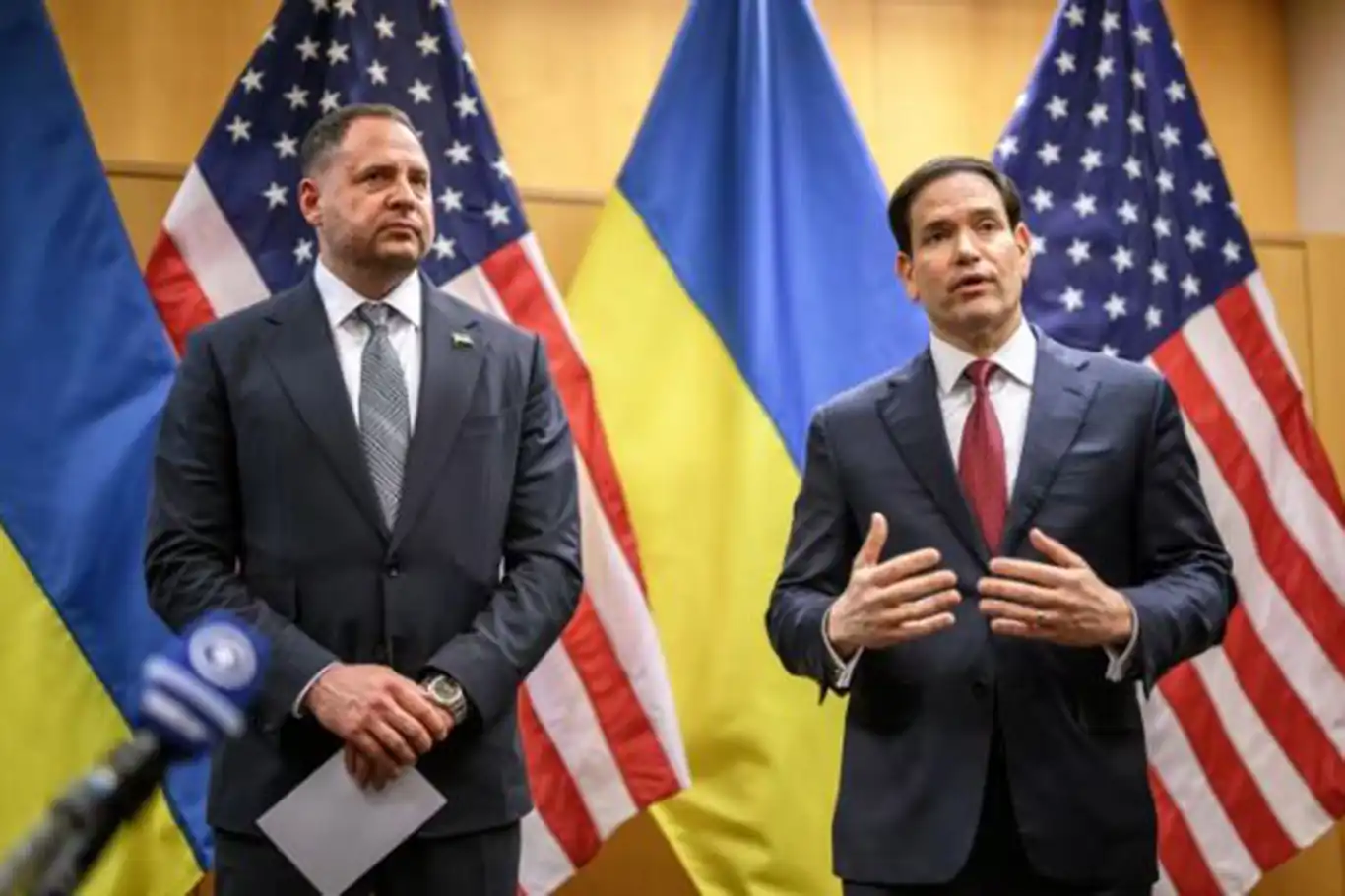Trump "quite pleased" with Geneva peace talks as Europe counters U.S.-backed plan


U.S. Secretary of State Marco Rubio announced on November 23 that President Donald Trump is "quite pleased" with the progress achieved at the ongoing peace talks in Geneva aimed at ending the conflict.
This optimism comes even as European nations issued a counterproposal to the initial U.S.-backed peace plan, which had been widely criticized for heavily favoring Russia.
Speaking to reporters in Switzerland, Rubio stated, "Today — and we've talked to [Trump] since — I think he's quite pleased at the reports we've given him about the amount of progress that's been made." He emphasized the core objective: "I think we all recognize that part of getting a final end to this war will require for Ukraine to feel that it is safe and it is never going to be invaded or attacked again."
The Secretary of State described the peace plan as a "living, breathing document," underscoring that it is still subject to change based on ongoing negotiations. The initially imposed deadline of November 27 (U.S. Thanksgiving Day), previously set by President Trump, could be extended. Rubio expressed optimism, noting, "Whether it's Thursday, whether it's Friday... we want it to be soon, because people are going to die."
Earlier in the day, President Trump had publicly criticized both Ukraine and Europe, writing that "Ukraine leadership has expressed zero gratitude for our efforts, and Europe continues to buy oil from Russia."
Despite the President's public rebuke, a joint statement released on November 23 by the U.S. and Ukraine described the opening round of consultations as productive. The statement said, “The talks were constructive, focused, and respectful, underscoring the shared commitment to achieving a just and lasting peace.” It also noted that Ukraine “reaffirmed its gratitude for the steadfast commitment of the United States and, personally, President Donald J. Trump.”
Ukrainian President Volodymyr Zelensky, in a separate address, echoed the positive sentiment, saying, “It is important that there is dialogue with the American representatives, and there are signals President Trump’s team is hearing us... Diplomacy has been reinvigorated, and that’s good."
Amid the intensive dialogue, Europe reportedly issued a counterproposal to the initial 28-point U.S.-backed plan. As reported by Reuters, this new proposal makes several significant changes, particularly regarding territorial recognition and security guarantees.
Key Differences in the European Counterproposal:
Territorial Integrity: The new peace proposal drops recognition of Russia's occupation of Ukrainian territories. This directly contradicts the initial plan, which stipulated that Luhansk and Donetsk oblasts (the Donbas region) would be internationally recognized as belonging to Russia.
Security Guarantees: The counterproposal calls for U.S.-backed security guarantees that mirror NATO's foundational Article 5, which treats an attack on one member as an attack on all.
Military Cap: Ukraine's peacetime military would be capped at 800,000 troops, an increase from the 600,000 stipulated in the initial plan.
NATO Status: The proposal states that Ukraine's NATO membership depends on alliance-wide consensus, which currently does not exist. It also prohibits NATO from permanently stationing troops on Ukrainian territory under its command in peacetime.
Zaporizhzhia Nuclear Plant: The plant would fall under international control, with produced electricity divided between Ukraine and Russia.
Prisoner Exchange: The plan stipulates that "All civilian detainees and hostages will be returned, including children."
Concessions Retained: Notably, the counterproposal retains certain concessions to Russia, specifically allowing Moscow to rejoin the Group of Eight, which currently operates as the G7.
The European counterproposal keeps several concessions originally included in the U.S. plan, but removes what many Ukrainian officials had viewed as the most problematic elements related to territorial recognition.
As the Geneva talks continue, negotiators on all sides say they hope to reach an agreement quickly to prevent further loss of life, though significant gaps remain between the competing visions of a settlement. (ILKHA)
LEGAL WARNING: All rights of the published news, photos and videos are reserved by İlke Haber Ajansı Basın Yayın San. Trade A.Ş. Under no circumstances can all or part of the news, photos and videos be used without a written contract or subscription.
A senior Hamas delegation led by Mohammad Darwish, Chairman of the Movement’s Leadership Council, held high-level talks in Cairo on Sunday to discuss ongoing Israeli ceasefire violations and the implementation of the current truce arrangements.
Lebanon’s Ministry of Public Health confirmed on Sunday that five people were killed and 28 wounded in an Israeli airstrike on Beirut’s southern suburb, marking one of the most serious escalations since last year’s ceasefire.
Turkish President Recep Tayyip Erdoğan delivered a strong message after the G20 Summit, asserting that "Global peace cannot be fully ensured unless a free Palestinian state is established."